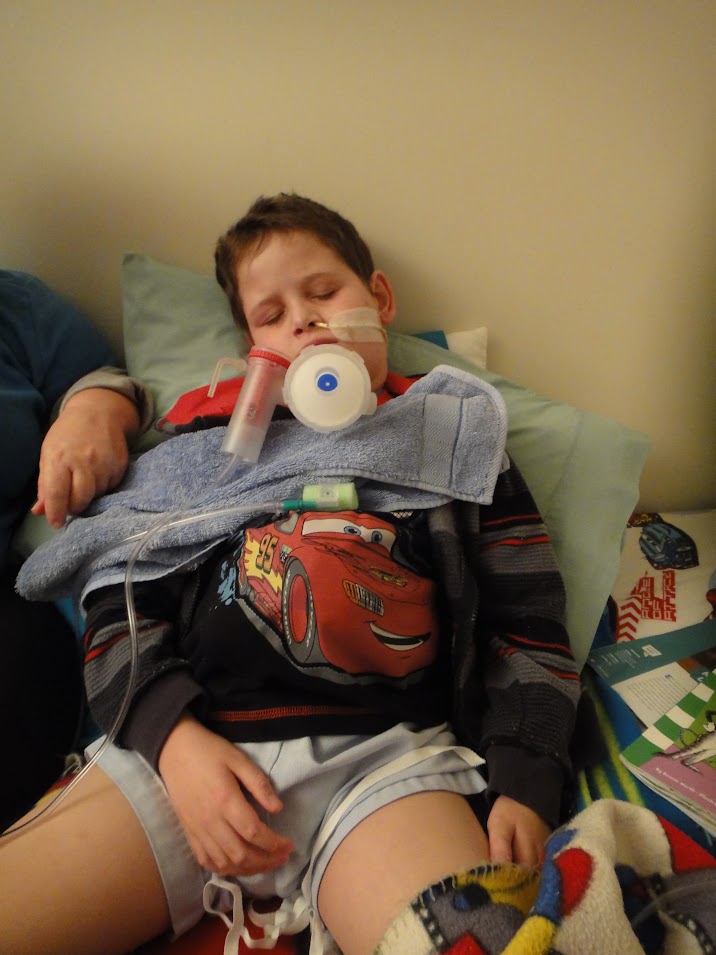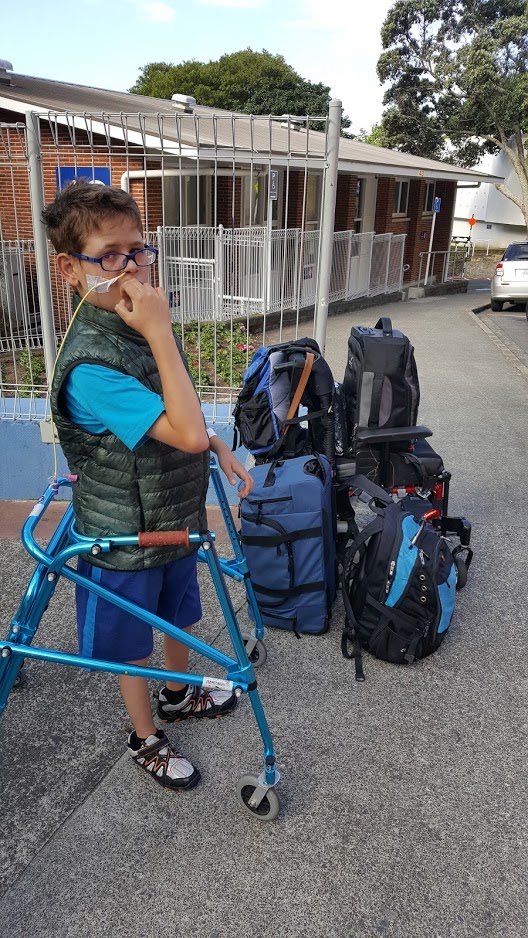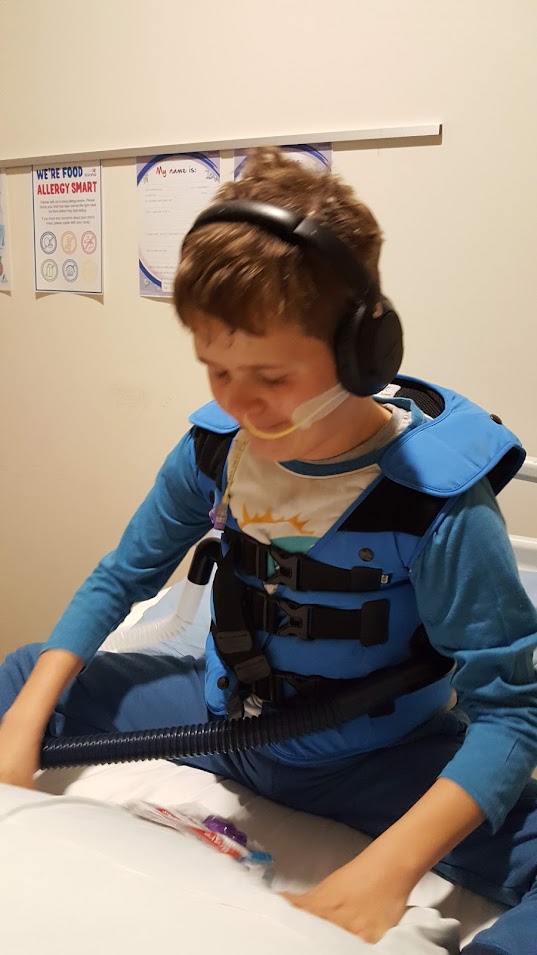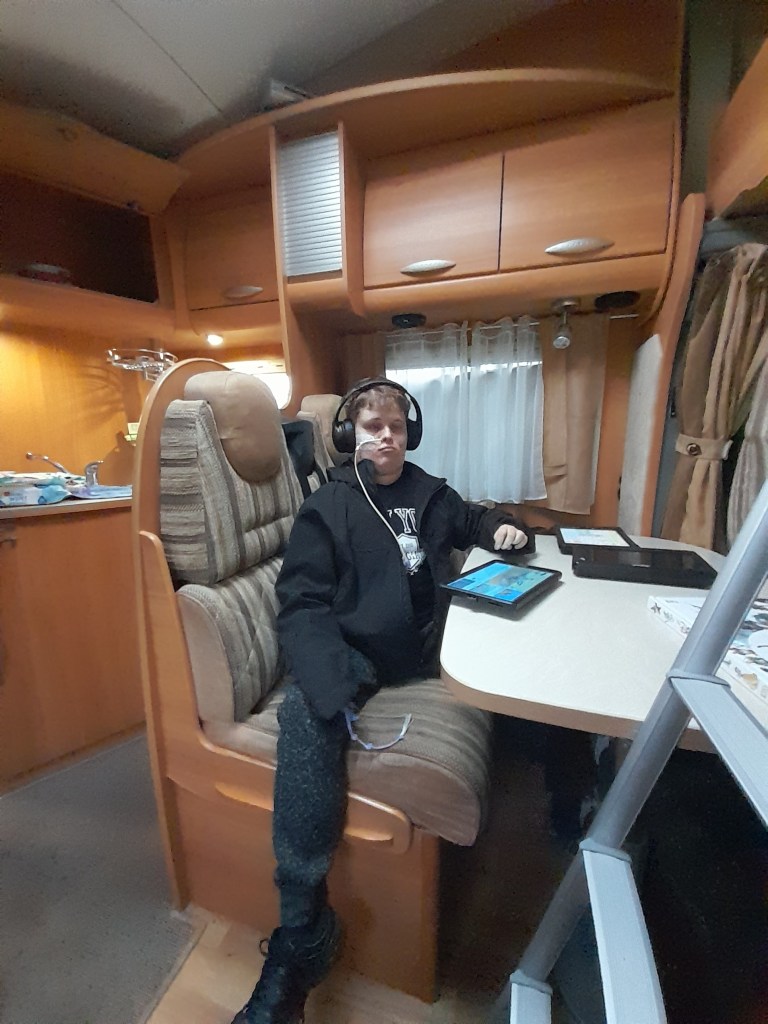I was left reeling on Monday this week, after reading a Facebook announcement by Whaikaha – Ministry of Disabled People. This release outlined radical restrictions to flexiblity of disability support funding- changes that were effective immediately. I was completely blindsided.
Earlier this year, I had become a representative of the Family/Whanau Network, on the Whaikaha Strategy Advisory Group. The role of this group is “to provide strategic advice on major work items including policy work, strategic intentions, Cabinet papers, and the impact of change on the lives of disabled people”. 1 This group had its first meeting in February, and as a member of that group I received an email on 18 March (the same time the announcement was made) to be told of the planned reductions and changes to flexibility. This group, set up as a partnership (representing many groups) was not consulted on this matter.
Whaikaha (I will refer to it as Whaikaha from here on, as it is shorter than the using both the Maori and English name) announced changes to what were ‘purchasing guidelines’ to ‘purchasing rules’ for the following types of disability support funding:
- Carer Support (CS)
- Individualised Funding (IF) – Respite
- Individualised Funding (IF) – Personal Cares (PC) and Household Management (HHM)
- Enhanced Individualised Funding (EIF)
- Enabling Good Lives – Personal Budgets (EGL PB)
- Choices in Community Living (CiCl)
If you don’t have a disability or a family member with a disability – it is unlikely that you have heard about any of these ‘funding streams’. If you are part of the disability community it is likely that you struggle to understand and find good information on what these are – and how they work. Even harder, is being assessed to find out how much you are ‘eligible’ for, and being judged on how you use that ‘tax payer’ money.
However, it is likely that you do know someone who is disabled, because in New Zealand one in four people are disabled 2. This is over one million people. These people and their families have been irrepairably damaged by this announcement to ‘pause’ flexible funding by the current government. The current government who ratified the United Nations Convention of the Rights of Persons with Disabilities (UNCRPD) back in 2008. The government who put in place the current New Zealand Disability Strategy (2016-2026), which promotes this Vision3:
“New Zealand is a non-disabling society – a place where disabled people have an equal opportunity to achieve their goals and aspirations, and all of New Zealand works together to make this happen”.
Personally, I joined the disability community in 2003 when I was told that after an ultrasound (where I found out I was having twins), that one of them was ”abnormal’. Hearing that news, changed me, and my views on life, in more ways than I could ever have imagined. This was my introduction to the world of disability. We often think that ‘things’ like this will not happen to us, until it does Nobody asks to be born with a congenital ‘abnormality’, nobody wants to have a life altering accident that places them in a wheelchair, noboby expects that they will get Multiple Sclerosis, become blind, have a chronic long term illness – the list is endless. But it does happen, and when it does you are thrust into a different world.
Becoming part of this world as a mother of a baby who was medically fragile meant that I had to ask for help from my family, friends and community, and that our family became directly impacted by the government policy for funded support. I have been fortunate that our family of four has remained intact – this has given us the ability to have one full time income and one primary family carer. Adopting a traditional family model of me being the primary carer worked best for our family, even though my husband and I earned the same income at the time we started a family.
To start a family, I left a professional job with a $60,000 per annum salary. The median wage in New Zealand for women was $16.474 per hour (it was $19.02 per hour for men), which is a salary of approximately $34,000, over 40% higher than the median wage of the time. I share these figures to demonstrate ‘loss of earnings’ I have incurred by becoming an unpaid family carer.
While I may have chosen to be a stay at home parent, due to the extent of the care required for our son, there was no choice of him going to ‘daycare’ if I wanted to return to work. He had a tracheostomy and oxygen, and daycare was neither affordable when he required one on one support or a good option due to his comprised immunity. Even when, our son started school at 5 1/2, there were too many days home sick, hospital admissions and appointments to consider working full time. There was no ‘inclusion’ for someone with intensive support needs. This meant if I wanted to work I had to find work around my husband’s hours or we swapped roles. We did what we considered the best option, and I rejoined the workforce in a part time capacity in retail, doing late nights and weekends, around 15-20 hours per week, earning just above minimum wage. This meant either myself or my husband was home at all times with our children. For a short while I took on a part time teaching job earning a professional wage, but this was difficult, stressful and became unmanageable due to the amount of time off I needed. We continued in this pattern until 2020 when Covid hit.
In our case, we have received government funding for caregivers/support workers from when Mitchell came home from hospital after living just over 2 years there fulltime. In the beginning, we received overnight support from a caregiver for 10 hours each night and some carer support days. Mitchell had come from staying in Pediatric Intensive Care, where he had received 24/7 intensive care by the most amazing nurses who deal with the most acute cases. After going to Starship hospital every day for 2 years, I was not starting this new situation feeling rested. I was in a major deficit, and was now going to have to manage all his care, at the same time as raising his twin and keep the house going, while Phil went out to work to pay the bills.
Becoming a mother, you are not expecting to also become a caregiver/support worker for your child. There is a vast difference being a parent of a ‘normal’ child. Some basic ones are that you don’t expect to change nappies for 20 years or to still be assisting with personal cares. This is why I have such a livid reaction to the comments made by Penny Simmonds MP about family carers, and the changes that affect carer wellbeing. Without the free or partly paid contribution of family carers, many of the disabled people would require much more assistance from government budgets. Saying that “we have to get the situation where the funding is going to the person with the disability” 5 is a great sentiment. Ironically, Ms Simmonds while telling us they are shifting to the priority of disabled people first, also put in place changes to equipment and modification services reducing or slowing down their accessibility supports and removing disabled peoples flexibility around travel, domestically and internationally. This implies that disabled people should not expect to be able to travel for work or on holiday and should stay put in their homes, away from community.
Back to the plight of family (and carers) in this debacle, I want to demonstrate how being a parent of a high and complex needs child differs to a parent raising an ‘able’ child in my experience.
As a parent of a high and complex needs child, the medical tasks I completed have included:
- Inserting Naso gastric tubes (daily as these are pulled out frequently) – 18 years
- Suctioning and changing Tracheostomy tubes (for 12 years) – something only specialist nurses do
- Operating a Bipap machine
- Mixing and giving complicated medications eg. gentamycin nebulisers, antibiotics, crushing tablets to make them tube friendly, understanding PRN guidelines.
- Administering home oxygen
- Changing dressings daily for over 2 years – because the District Nurses were in short supply
- Attending hundreds of medical appointments and doctors rounds (while in hospital)






In addition to medical tasks, I have needed to become a pseudo unpaid therapist:
- Use Picture Exhange Cards (PECs)
- Learn and manage an AAC device
- Do basic physio and use an oscillating vest machine
- Make a blended diet
- Learn makaton/basic sign language
- Follow ‘behaviour’ plans implemented by Behaviour Support Therapists
- Take Mitch to specialised, adapted activities such as RDA and Sailability



With the introduction of Individualised Funding I also became an employer and manager of my son’s needs:
- Currently I manage a roster of between 3 to 7 people
- Prepare payroll
- I’ve recruited over 100 staff over the past 18 years
- Attended numerous appointments
- Gone to Multi Disciplinary Meetings (MDTs)
- Sat through multiple Needs Assessments with Taikura Trust, Family Options and CMDHB
- Dealt with a ‘host’ agency for employment, timesheet and other issues
Due to the nature of Mitchell’s condition and unique communication methods, I have also become my son’s advocate. To be his advocate and his voice, I have spent hours learning, researching and gathering knowledge on how to give him opportunities that his sister was able to access naturally. I have been a member of multiple support and advocacy groups on a volunteer basis. I have needed to do this to give him the best opportunities available. Watching twins group up together, when one is healthy, and one is disabled, has given me a unique perspective on equity. I have used my skills to advocate for our son and others who follow behind his path. Mostly, this work has been a labour of love.
Because of the severity of Mitchell’s condition, our medical and therapy professionals and the advocacy I have been able to provide, we have received a support package to meet his needs. The support package we have received has allowed for him to live at home, and to not be placed in residential care – which would cost more than caring for him at home, where we are the natural supports. I am eternally grateful for that. I know that this money comes from taxpayer funds. I am glad that we are living in New Zealand where we have a free healthcare system. I understand that money is not limitless and that government is responsible for a wide range of priorities. I am lucky that I was born into a NZ European, middle class family and that we have mostly been able to support ourselves on one full time and one part time income. This is my situation, not everyone is so lucky.
There are many sole parent families. There are disabled people with no family support. There are disabled parents, caring for disabled children. One day, if our son outlives us, he will require full time care by the state. I have little faith in that situation and we have been trying to work on setting up a more independent living situation to bridge this gap as we get closer to our retirement age. At the end of this year he is no longer eligible to stay at Wilson Home – the only high needs facility based respite in the country for children. We will no longer have this option and our only option for respite is to used aged residential care, because they have nursing staff. Or we can leave our home, and our son can stay at home with support workers. This is something we have been working on and to make this an option, we have sold our home and purchased a campervan to go away in every now and then for a break. But not everyone has this option and for many families, staying in, while someone supports your family member is not a break. It is natural that your child still comes to you, they can’t just switch off and know that the support worker is now the one who they have to ask to change the you tube channel, or take them for a drive. This is one of the reasons family get respite funds to use towards paying for accommodation, so they have somewhere to go and stay while their person stays home. Not everyone has a friend or family to stay with.
Recently, we negotiated with a disability provider to move Mitchell into a more ‘independent’ living situation. We found out that because he still used oxygen therapy at night, the only option available to him would be ‘aged residential care’. He is considered ‘too difficult’ for support workers and a health and safety risk. If we had enough money (we don’t) we could buy/rent a place for him and set up a Choice’s in Community Living Model – we would still be subsidising this because between the disability funding, the health funding and the MSD funding he would have about $50 a week for personal purchases, activities, medications, transport etc.
I hope that our story is painting a picture of why a family carer needs a break and showing that Disabled people are not getting the support they need. I have not even begun to describe the challenges we have faced with behaviour challenges, aggression, smearing or other topics that many families deal with and keep hidden from community. Successive governments and successive system changes have ignored the voice of families and the needs of family alongside the disabled people they care for. Carers NZ and the Carers Alliance have advocated strongly with their Carers Strategy and Petitions for better conditions for Carers and family supporting those with health or disability needs, but our needs are constantly overlooked. Possibly because the majority of the care workforce is female, and New Zealand still has a long way to go on gender and pay equity.
In February 2023, the median wage in New Zealand was updated to $29.66 per hour, a salary of $61,692 per annum. This hourly rate is also the approximate amount a family carer can be paid under Individualised Funding. Family carers can pay themselves approximately $29.10 per hour, for the amount of hours they are assessed for – this was a step towards respecting the value of family care. This option has been made available to most family carers for the last couple of years, prior to this, it was covered under the Family Funded Care Policy (2013), which allowed family carers of Very High Needs to be paid minimum wage up to a maximum of 40 hours. There are 168 hours in a week, and many family carers provide cares well above the ‘assessed’ times which only include an allocation for ‘feeding, bathing, personal cares’. There is a huge gap between what is assessed and what is provided by family. For many families raising autistic children, assessments are very, very low compared to actual need. Families in these situations (and many others) can find themselves isolated, burnt out and depressed. This is why they need a break and that break can look like many things – time off, sleep, self-care, sport and exercise, travel, going to a movie, socialising etc. For many, who have no other income because they are full time caregivers, they cannot afford to do anything in a break. This is why flexible IF respite is important for both the disabled person and their carer. For families without any other income because they are caring fulltime, they are now put in a position of only having a break, such as going for a walk, taking a sleep while a support worker cares for their child. That is if you can find a support worker! Or find a support worker with the skills to care for your child.
The messaging from Ms Simmonds around carers taking pedicures, manicures, massages and overseas travel has been offensive, out of context and an obvious strategy to sway public opinion against carers. Personally, we have used some respite funding towards an overseas trip – a contribution of around 20% of the total trip. I don’t want to feel ashamed by this and I don’t want other parents to be ashamed of any self-care item they have purchased using flexible funding.
I don’t feel ashamed because, if government budgets truly supported disabled people with the support and supervision hours needed above ‘normal’ parenting responsibilities I would have been able to return to work. I would have been able to buy all the pedicures, massages, and overseas travel that I could afford. Instead, for the last 15 years (from when Mitchell started school), I have averaged a salary of around $20,000 to $35,000 pa through doing part time jobs, and being paid as a family carer. If I had been able to return to work when my children went to school (it is a human right to work), my potential salary at 40% above a median wage today (what it was in 2003) would be around $85,000 pa. In one year only, working full time I would have more than $50,000 to spend on all the self-care I want! I would rather be able to go to out to work and give my son more autonomy with support workers, but there is a crisis workforce shortage. Recently, I resorted to applying to be an accredited employer and have been able to recruit an international candidate. Not an easy process.
I don’t have time to do the math on what earnings I have lost for the last 20 years or to calculate the difference in what my superannuation would have been. I have made choices to support my family because they are the most important thing in the world to me. We call these choices, but it is not a choice for a disabled person to be excluded from society – it is what happens when there is not enough support to aid their inclusion. For a parent it is simply a choice to do the best you can for your child. If this government wants to make sure funding goes directly to disabled people, then they need to increase the budget to accommodate all of the support needed that is currently unpaid support provided by family carers. This support means ‘starting early’. This support means working on changing societies attitudes. This support includes giving choice and control back to disabled people and their family. This support is more than ‘funding’ it is a whole approach.
The announcements and subsequent updates this week failed on so many levels:
- Lack of consultation
- Delivery that was unprofessional and not disability friendly (still waiting on some Easy Read/Sign Language)
- Language used by the Minister is out of date with the social model of disability
- Incorrect facts – e.g. the accommodation and travel were possible before flexible funding
- Made a mockery of the Enabling Good Lives principles and approach
- Failed to acknowledge that there have been purchasing guidelines in place before the purchasing rules
- Funding to IF clients is a set annual budget and clients can’t overspend what they are assessed on
- Pretending that changes to rules is not a funding cut
- Went against the outcomes of the NZ Disability Strategy and the United Nations Convention of Rights for Disabled People6.
What I would like to see happen from here:
- Acknowledgement and apology to the disability community from the Minister
- Acknowledgement and apology from Whaikaha
- Immediate to return to the status Quo – 17 March
- The new Disability Strategy to include Enabling good lives as part of the pillars
- A new flexible Respite Strategy and a time line for implementing actions
- The rollout of Enabling Good Lives nationwide over the next 18 months.
- An investigation into how funds have been used within Whaikaha and why there was such a panic reaction
- An increase in funding in the next budgets for Vote MSD and Vote Health to meet the disabled communities growth and needs.
- A workforce strategy for support workers and changes to the training for home care support workers in line with feedback from the community
Until such time that these things happen, our family will continue to support our son to the best of our capabilities and we will advocate for him, and others who are affected by these changes. We will continue to enable his good life.



Love Cherie x
Notes:
- https://www.whaikaha.govt.nz/news-and-events/news/community-update-december-2023#partnerships
- https://www.odi.govt.nz/home/about-disability/key-facts-about-disability-in-new-zealand/
- https://www.odi.govt.nz/assets/New-Zealand-Disability-Strategy-files/pdf-nz-disability-strategy-2016.pdf Page 8
- https://www.socialreport.msd.govt.nz/2004/paid-work/average-earnings-wage-salary.html#:~:text=Current%20Level%20and%20Trends,on%20average%20%2416.57%20an%20hour.
- https://www.rnz.co.nz/national/programmes/morningreport/audio/2018930852/disability-issues-minister-penny-simmonds-on-changes-to-funding
- https://www.odi.govt.nz/united-nations-convention-on-the-rights-of-persons-with-disabilities/read-the-convention/
My heart breaks for you.
I am an AuDHD Adult, didn’t even know I was till part way through the first pandemic lockdown, gone my whole life on struggle street without knowing why I couldn’t do what others could. I don’t currently receive any support outside of the supported living payment – as I’ve yet to receive full diagnosis because in Whanganui there isn’t capacity/funding/ for the testing and I am Obviously in no position to pay for it myself.
I was diagnosed as adhd as a kid and briefly medicated but the social stigma was *so* bad my school told my parents I couldn’t carry on having meds *at* school because it was too “distracting”.
I live with my parents, and they’re both in their late 70s now, mum broke her hip last month so I’m playing at home help/carer for her (which I am happy to do) when/where she needs it outside of the hospital/acc help.
Once they are gone, I will be Alone, unsupported, and quite likely homeless – so that’s going to be fun. I would move to Australia to be with my best friend who is like a sister/family to me, but I wouldn’t have any financial support or means of supporting myself.
I’m terrified of the future, I am afraid for your family as well, and all the rest of Aotearoa’s disabled community as well. We’re an easy target so naturally we’re the easiest to punch down on by National+Act governments.
It’s easy for them, they’re all financially well off to a degree that they’d never Need funding – but they’d take it because it’s there – he’s ENTITLED after all, may we never forget or forgive that.
I can no longer convince (gaslight?) myself with my ND optimism that things will be ok in the end. I’m too tired, too jaded, and too cynical now.
It’s harder every day to be a proud kiwi.
LikeLike
Brilliant piece Cherie. We so desperately need politicians and people of influence to understand to world families with disabled people live in, particularly High and Complex needs. I have shared the link.
LikeLike